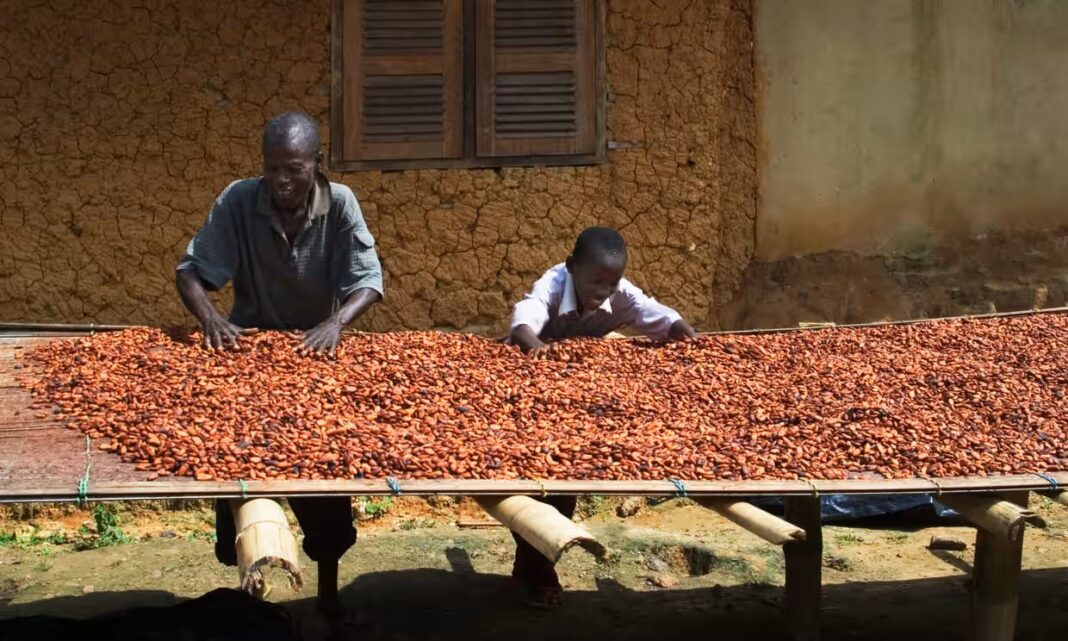Researchers warn that the climate crisis is damaging the world’s cocoa supply. Weeks of extreme heat in West Africa—the region responsible for 70% of global cacao production—have significantly impacted harvests.
Farmers in Ivory Coast, Ghana, Cameroon, and Nigeria face rising temperatures, unpredictable rainfall, and crop diseases, all contributing to declining cocoa yields. This drop in production has triggered record-high cocoa prices, making chocolate more expensive worldwide.
A new report by Climate Central found that climate change—driven primarily by burning fossil fuels—has increased the frequency of extreme heat in cacao-producing regions. By analyzing data from 44 cocoa-growing areas and using computer models, researchers compared today’s temperatures to those of a world unaffected by global warming.
Key findings include:
🌡 Hotter-than-optimal temperatures (above 32°C) have become more frequent.
🌱 In Ivory Coast and Ghana, global heating has added an extra three weeks of extreme heat during the main growing season.
🔥 2023, the hottest year on record, saw at least 42 days of temperatures exceeding 32°C across two-thirds of the cocoa-growing regions.
With rising global temperatures threatening cacao trees, experts warn that the chocolate market could face further disruptions in the coming years. Without urgent climate action, the world’s favourite sweet treat may become a luxury rather than an everyday delight. Read More
News Credit: The Guardian
Picture Credit: Greenshoots Communications/Alamy



